 W
WAutonomism, also known as autonomist Marxism and autonomous Marxism, is an anti-authoritarian left-wing political and social movement and theory. As a theoretical system, it first emerged in Italy in the 1960s from workerism (operaismo). Later, post-Marxist and anarchist tendencies became significant after influence from the Situationists, the failure of Italian far-left movements in the 1970s, and the emergence of a number of important theorists including Antonio Negri, who had contributed to the 1969 founding of Potere Operaio as well as Mario Tronti, Paolo Virno and Franco "Bifo" Berardi.
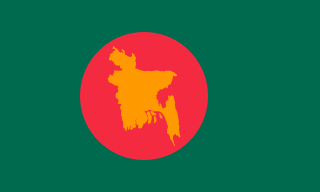 W
WThe Bengali freedom struggle refers to various movements and wars over the 18th, 19th and 20th centuries aimed at liberating the ethno-linguistic region of Bengal from colonial rule and later from ruling establishments located outside historic Bengali territory. During the 20th Century, Bengali nationalism developed and emerged as a popular political ideology glorifying the Bengali people as a distinctive cultural and linguistic nation.
 W
WThe Bengali Renaissance or simply Bengal Renaissance, was a cultural, social, intellectual and artistic movement in Bengal region in the eastern part of the Indian subcontinent during the period of the British Indian Empire, from the 19th century to the early 20th century dominated by Bengali Hindu community.
 W
WThe birth control movement in the United States was a social reform campaign beginning in 1914 that aimed to increase the availability of contraception in the U.S. through education and legalization. The movement began in 1914 when a group of political radicals in New York City, led by Emma Goldman, Mary Dennett, and Margaret Sanger, became concerned about the hardships that childbirth and self-induced abortions brought to low-income women. Since contraception was considered to be obscene at the time, the activists targeted the Comstock laws, which prohibited distribution of any "obscene, lewd, and/or lascivious" materials through the mail. Hoping to provoke a favorable legal decision, Sanger deliberately broke the law by distributing The Woman Rebel, a newsletter containing a discussion of contraception. In 1916, Sanger opened the first birth control clinic in the United States, but the clinic was immediately shut down by police, and Sanger was sentenced to 30 days in jail.
 W
WThe Black Catholic Movement or Black Catholic Revolution was a movement of African-American Roman Catholics which developed and shaped modern Black Catholicism.
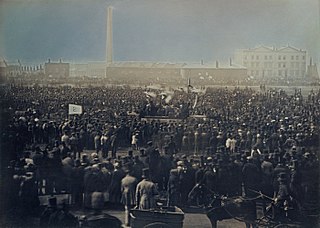 W
WChartism was a working-class male suffrage movement for political reform in Britain that existed from 1838 to 1857. It took its name from the People's Charter of 1838 and was a national protest movement, with particular strongholds of support in Northern England, the East Midlands, the Staffordshire Potteries, the Black Country, and the South Wales Valleys. Support for the movement was at its highest in 1839, 1842, and 1848, when petitions signed by millions of working people were presented to the House of Commons. The strategy employed was to use the scale of support which these petitions and the accompanying mass meetings demonstrated to put pressure on politicians to concede manhood suffrage. Chartism thus relied on constitutional methods to secure its aims, though some became involved in insurrectionary activities, notably in South Wales and in Yorkshire.
 W
WThe Haymarket massacre was the aftermath of a bombing that took place at a labor demonstration on May 4, 1886, at Haymarket Square in Chicago. It began as a peaceful rally in support of workers striking for an eight-hour work day, the day after police killed one and injured several workers. An unknown person threw a dynamite bomb at the police as they acted to disperse the meeting, and the bomb blast and ensuing gunfire resulted in the deaths of seven police officers and at least four civilians; dozens of others were wounded.
 W
WHomes before Roads was a 1970s political movement and campaign in the United Kingdom initially formed in London in 1970 to oppose plans to construct a system of four interlinked concentric motorways through and around London, known as Ringways. The name was subsequently used by other anti-motorway campaigns elsewhere in the country.
 W
WThe Independence of Croatia was a process started with the changes in the political system and the constitutional changes in 1990 that transformed the Socialist Republic of Croatia into the Republic of Croatia, which in turn proclaimed the Christmas Constitution, and held the 1991 Croatian independence referendum.
 W
WThe Indian independence movement was a series of historic events with the ultimate aim of ending the British rule in India. The movement spanned from 1857 to 1947.
 W
WIndigenous rights are those rights that exist in recognition of the specific condition of the indigenous peoples. This includes not only the most basic human rights of physical survival and integrity, but also the rights over their land, language, religion, and other elements of cultural heritage that are a part of their existence and identity as a people. This can be used as an expression for advocacy of social organizations, or form a part of the national law in establishing the relation between a government and the right of self-determination among its indigenous people, or in international law as a protection against violation of indigenous rights by actions of governments or groups of private interests.
 W
WKaddakkal Riot is one of the 39 movements/struggles that led to India getting freedom from the British Raj. It is known as the "Kadakkal Riot Case" and is recognized by the Home Ministry of Government of India. The struggle was led by Franco Raghavan Pillai. Kadakkal Riot Case was an important part of the Indian independence movement from Kerala.
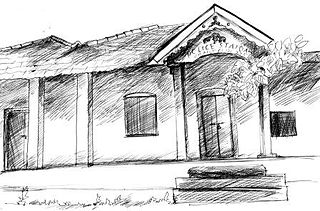 W
WThe Kallara-Pangode Struggle is one of the 39 agitations declared by the Government of India as the movements that led to the country gaining independence from the British rule. It is listed alongside some of the most important movements of Indian independence such as Quit India Movement, Khilafat Movement, Malabar Rebellion, the Ghadar Party Movement and Hollwell Revolt Movement by Netaji Subhash Chandra Bose. It is ranked 26th among the 39 most revered movements that were part of Indian Independence Movement and culminated in the British rule ending over Indian territories in 1947.
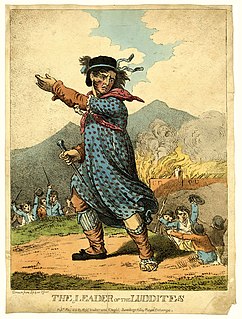 W
WThe Luddites were a secret oath-based organization of English textile workers in the 19th century, a radical faction which destroyed textile machinery as a form of protest. The group are believed to have taken their name from Ned Ludd, a weaver from Anstey, near Leicester. They protested against manufacturers who used machines in what they called "a fraudulent and deceitful manner" to get around standard labour practices. Luddites feared that the time spent learning the skills of their craft would go to waste, as machines would replace their role in the industry. Many Luddites were owners of workshops that had closed because factories could sell the same products for less. But when workshop owners set out to find a job at a factory, it was very hard to find one because producing things in factories required fewer workers than producing those same things in a workshop. This left many people unemployed and angry. Over time, the term has come to mean one opposed to industrialisation, automation, computerisation, or new technologies in general. The Luddite movement began in Nottingham in England and culminated in a region-wide rebellion that lasted from 1811 to 1816. Mill and factory owners took to shooting protesters and eventually the movement was suppressed with legal and military force.
 W
WMoralism is a philosophy that arose in the 19th century that concerns itself with imbuing society with a certain set of morals, usually traditional behaviour, but also "justice, freedom, and equality". It has strongly affected North American and British culture, concerning private issues such as the family unit and sexuality, as well as issues that carry over into the public square, such as the temperance movement.
 W
WA peace movement is a social movement that seeks to achieve ideals such as the ending of a particular war, minimize inter-human violence in a particular place or type of situation, and is often linked to the goal of achieving world peace. Means to achieve these ends include advocacy of pacifism, non-violent resistance, diplomacy, boycotts, peace camps, moral purchasing, supporting anti-war political candidates, legislation to remove the profit from government contracts to the Military–industrial complex, banning guns, creating open government and transparency tools, direct democracy, supporting Whistleblowers who expose War-Crimes or conspiracies to create wars, demonstrations, and national political lobbying groups to create legislation. The political cooperative is an example of an organization that seeks to merge all peace movement organizations and green organizations, which may have some diverse goals, but all of whom have the common goal of peace and humane sustainability. A concern of some peace activists is the challenge of attaining peace when those that oppose it often use violence as their means of communication and empowerment.
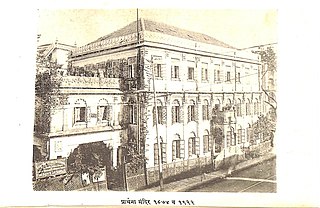 W
WPrarthana Samaj or "Prayer Society" in Sanskrit, was a movement for religious and social reform in Bombay, India, based on earlier reform movements. Prarthana Samaj was founded by the Dadoba Pandurang and his brother Atmaram Pandurang in 1867 when Keshub Chandra Sen visited Maharashtra, with an aim to make people believe in one God and worship only one God. It became popular after Mahadev Govind Ranade joined. The main reformers were the intellectuals who advocated reforms of the social system of the Hindus. It was spread to southern India by noted Telugu reformer and writer, Kandukuri Veeresalingam.
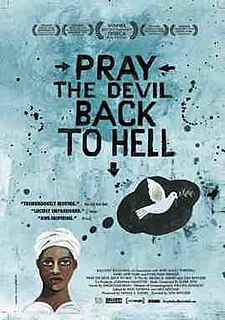 W
WPray the Devil Back to Hell is a documentary film directed by Gini Reticker and produced by Abigail Disney. The film premiered at the 2008 Tribeca Film Festival, where it won the award for Best Documentary. The film had its theatrical release in New York City on November 7, 2008.
 W
WThe Red Power movement was a social movement led by Native American youth to demand self-determination for Native Americans in the United States. Organizations that were part of Red Power Movement included American Indian Movement (AIM) and National Indian Youth Council (NIYC). This movement sought the rights for Native Americans to make policies and programs for themselves while maintaining and controlling their own land and resources. The Red Power movement took a confrontational and civil disobedience approach to inciting change in United States to Native American affairs compared to using negotiations and settlements, which national Native American groups such as National Congress of American Indians had before. Red Power centered around mass action, militant action, and unified action.
 W
WThe Redstone Building, also known as the Redstone Labor Temple, was constructed and operated by the San Francisco Labor Council Hall Associates. Initial planning started in 1910, with most construction work done during 1914. Its primary tenant was the San Francisco Labor Council, including 22 labor union offices as well as meeting halls. The building was a hub of union organizing and work activities and a "primary center for the city's historic labor community for over half a century."
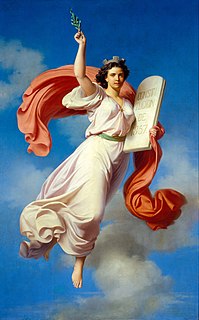 W
WThe Reform laws were a set of anticlerical laws enacted in Mexico between 1855 and 1863, during the governments of Juan Alvarez, Ignacio Comonfort and Benito Juárez that were intended to limit the privileges (fueros) of the Roman Catholic Church and the military. The laws also limited the ability of Catholic Church and indigenous communities from collectively holding land. The liberal government sought the revenues from the disentailment of church property, which could fund the civil war against Mexican conservatives and to broaden the base of property ownership in Mexico and encouraging private enterprise. Several of them were raised to constitutional status by the constituent Congress that drafted the liberal Constitution of 1857. Although the laws had a major impact on the Catholic Church in Mexico, liberal proponents were not opposed to the church as a spiritual institution, but rather sought a secular state and a society not dominated by religion.
 W
WThis is a list of revolutions and rebellions.
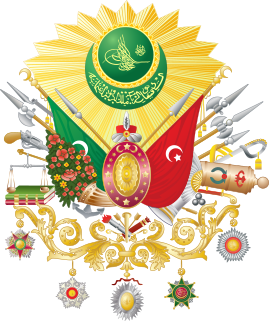 W
WThe Tanzimat was a period of reform in the Ottoman Empire that began in 1839 and ended with the First Constitutional Era in 1876.
 W
WThe Walter P. Reuther Library, Archives of Labor and Urban Affairs, located on the campus of Wayne State University in Detroit, Michigan, contains millions of primary source documents related to the labor history of the United States, urban affairs, and the Wayne State University Archives. The building is named for UAW President and Congress of Industrial Organizations President Walter Reuther.
 W
WWesthoughton Mill or Rowe and Dunscough's Mill, in Mill Street in Westhoughton, near Bolton in the historic county of Lancashire, was the site of a Luddite arson attack in 1812. The mill was built in 1804 by Richard Johnson Lockett, a Macclesfield man who lived at Westhoughton Hall. He leased the mill to Thomas Rowe of Manchester in 1808.